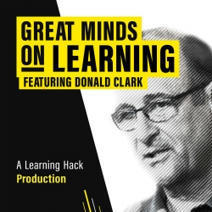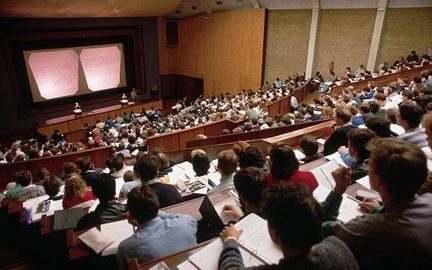University lectures are traditionally an hour long because the Sumerians had a base-60 number system. It is for the convenience of timetabling, not the psychology of attention and retention.
News that, for the first time, most university students are now spending less than two hours a day in lectures, as attendance rates plummet, shouldn't surprise.
One of the saddest learning stories I’ve ever heard was from the actress Tilda Swinton. She was the only student who turned up to a lecture at Oxford by Raymond Williams where he read out his lecture, from notes, from behind the lectern, and neither of them even acknowledged each other.
Studies show consistently poor attendance rates for university lectures across all subjects. Imagine running a restaurant, where people pay for the food up front and 40 per cent fail to turn up. You’d surely question the quality of the food.
Higher Education values research over teaching, yet studiously ignores the research around teaching. Research on attendance is worrying. Research on why researchers don’t make great teachers is clear.
It’s an inconvenient truth but researchers are systematic, obsessed by detail and often lack the social skills to be good teachers. Witness the 20 stab-point PowerPoint slides, the often dull delivery, the lack of engagement. Teaching skills demand social skills, communication skills, the ability to hold an audience, keep to the right level, avoid cognitive overload, good pedagogic skills and the ability to deliver constructive feedback.
The unrecorded lecture is a strange concept if you think about it. Suppose that journalists read out pieces once a day in the local square, a novelist reads his book only once and didn’t publish it in book form. To deny students second and subsequent bites of the cherry is an act of conceit. Little is learnt on first exposure, most is learnt from subsequent effort.
The only solution is to largely stop lecturing. In practice, students increasingly learn via Google, YouTube and other online educational tools. The lecture is increasingly under attack from superior tools, sensitive to proven research on how we really learn.
We are also now seeing the rise of smart, AI-driven technology which will enable us to learn in different ways depending on how our brains work. Yet few academics are even aware of the existence of these tools.
Note that I’m not wholly against lectures. Students want to see academics in the flesh. To see a practicising philosopher or physicist, be inspired by that person and subject. This type of inspiring, spot lecture is important. Slabbing lectures out term after term, by researchers who struggle to present, never mind teach, is not just lazy, it is dishonest. Teach me, don’t lecture me.
 Your new post is loading...
Your new post is loading...
 Your new post is loading...
Your new post is loading...













